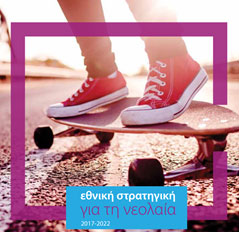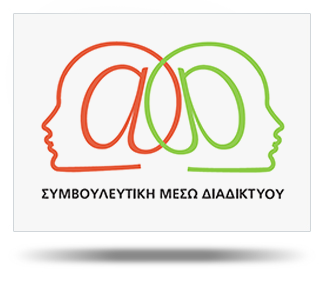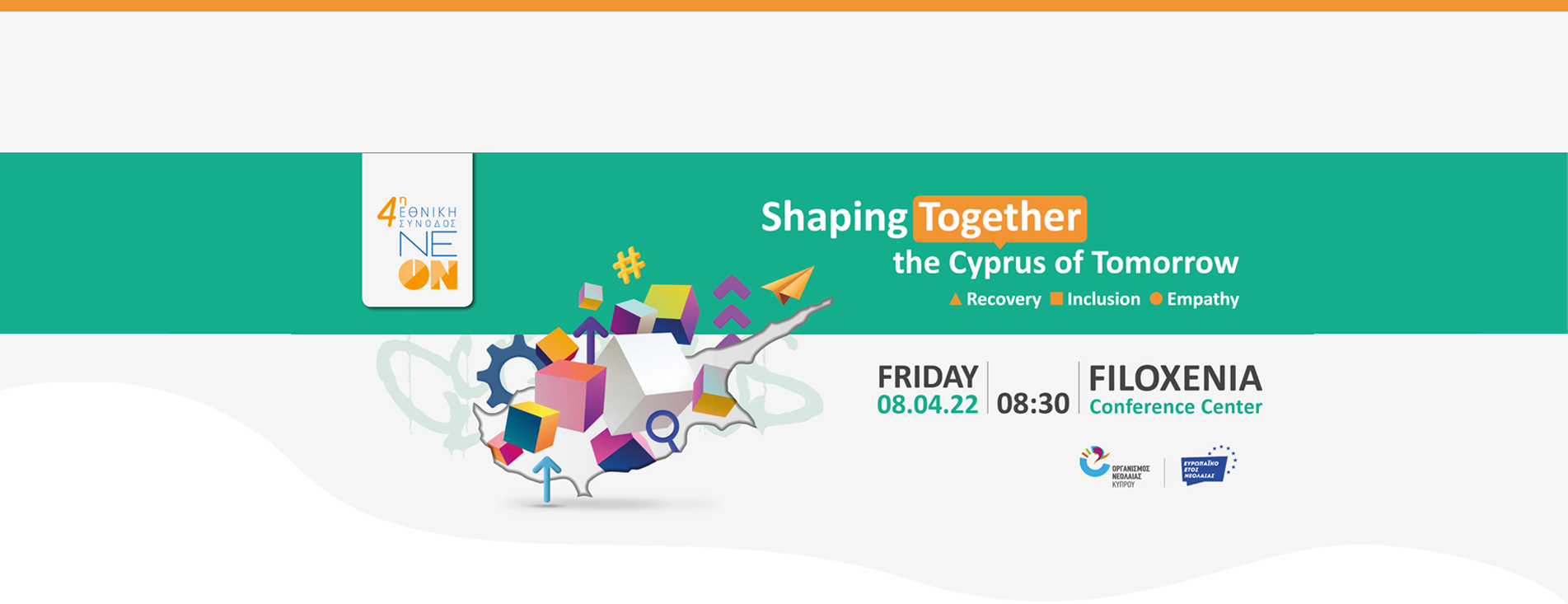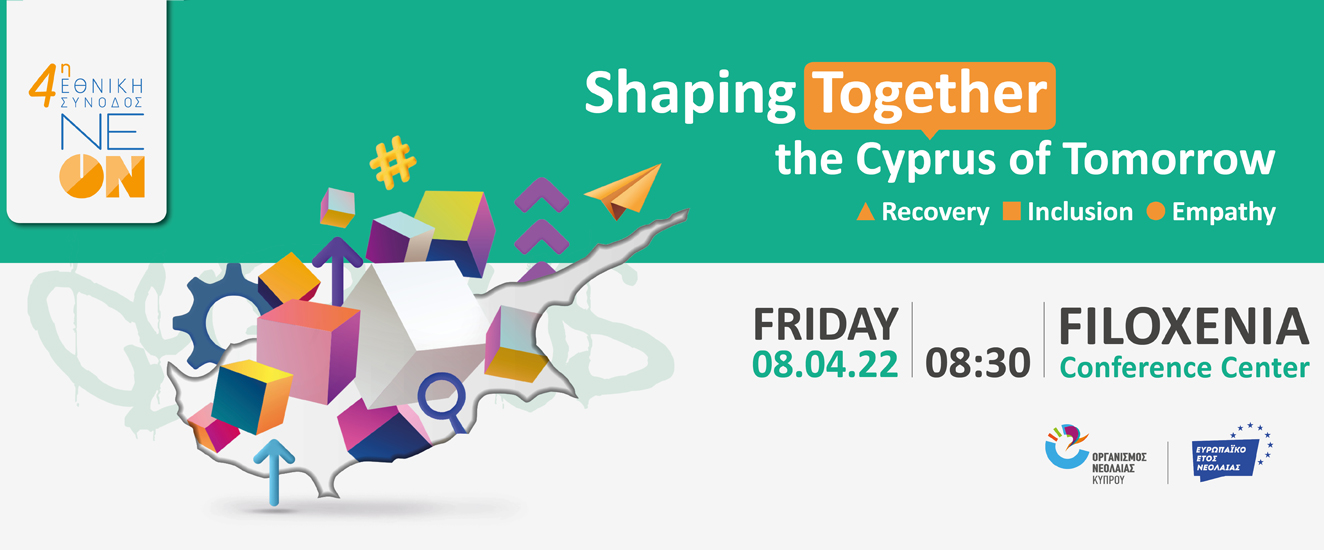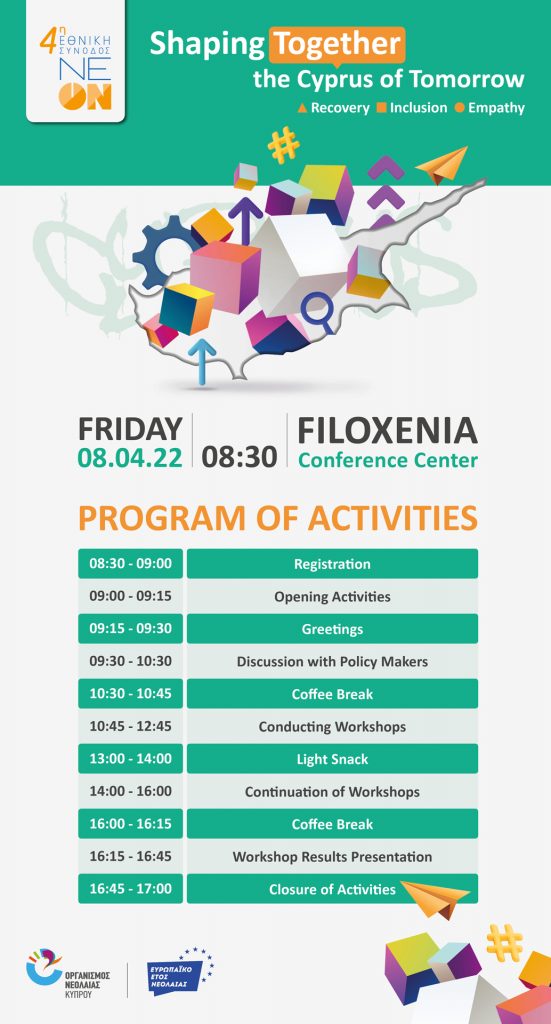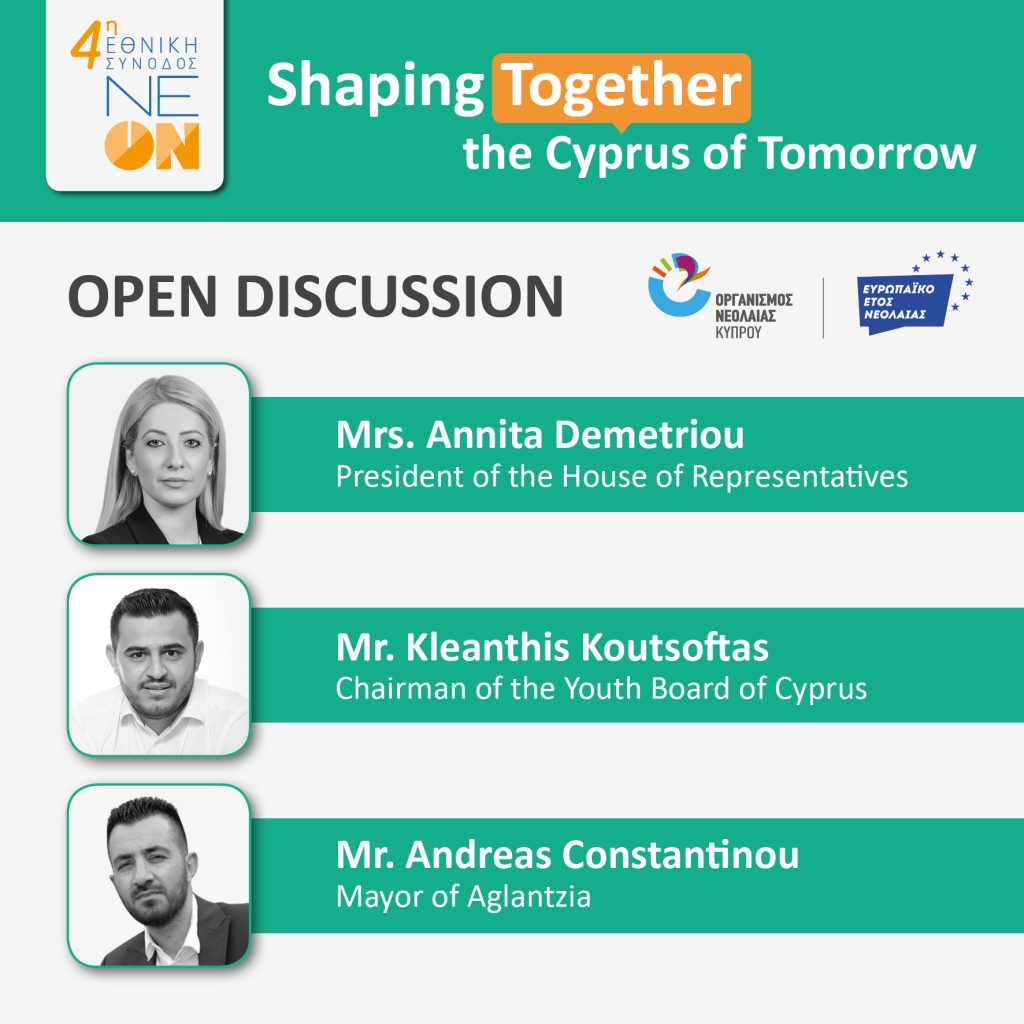The Youth Board of Cyprus is organising the 4th National Youth Conference, having as main objective to support and encourage an active youth participation in decision making on all levels.
The National Youth Conference was introduced by the Youth Board of Cyprus in 2015, and since then, it has been the largest participatory consultation event between the youth and the state, aiming to enhance opportunities for young people’s engagement in public and social affairs. The National Youth Conference is inclusive, embracing young people of different ages, geographical and social backgrounds, and it applies non-formal education tools and practices.
The 4th National Youth Conference “Shaping Together the Cyprus of tomorrow” is going to tackle current challenges of young people in Cyprus. The event is under the auspices of the Speaker of the House of Representatives of Cyprus, Mrs. Annita Demetriou.
Participants will have the opportunity to have an open discussion with policy makers, addressing their questions directly to them.
Moreover, through workshops, participants will exchange ideas on certain topics, shaping collective suggestions and proposals which will serve as food for thought for the forthcoming National Youth Strategy 2023-2030, and will contribute to forming more advanced and better youth policies.
The 4th National Youth Conference is organised within the framework of 2022 – European Year of Youth.

